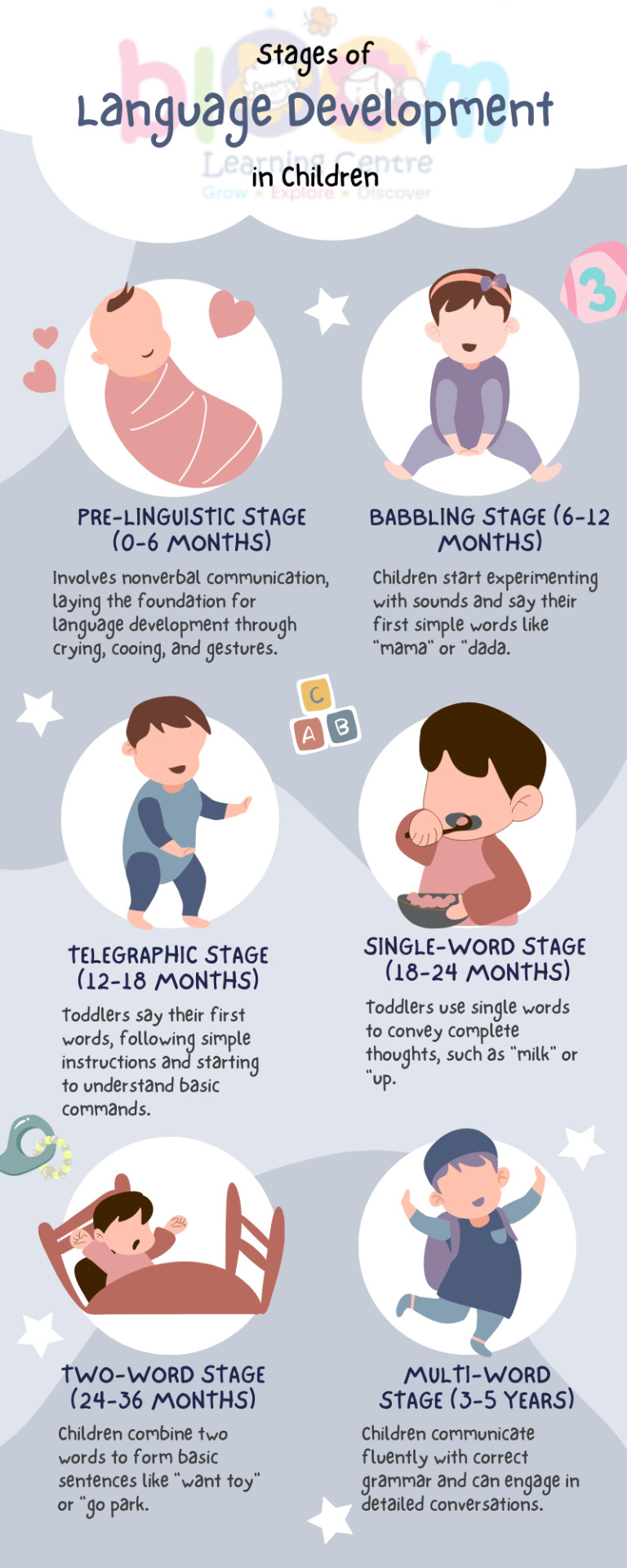#speechdevelopment
Explore tagged Tumblr posts
Text

ഇനി കേൾവി പരിശോധന വീട്ടിൽ തന്നെ
നിങ്ങളെ കേൾക്കാൻ എന്നെ വിളിക്കൂ😊
🔊 Hear better, feel closer – right from your home!
🏠 Home Visit Available Now | 👩⚕️ Audiologists On-Call
📞: 6238381166 🌐: nairashearingworld.com 📍: Sreela TC/24/212, Rangoon, Ambalamukku, Kowadiar P.O, Pin: 695003
#hearingcare#speechtherapy#hearinghealth#betterhearing#hearingmatters#audiologycare#speechdevelopment#hearingsolutions#hearbetterlivebetter#hearingisliving#pediatricspeechtherapy#speechdelayhelp#kidsspeechtherapy#earlyintervention#childhearingcare#toddlertalk#speechmilestones
0 notes
Text
#SpeechExercises#SpeechTherapy#HomePractice#EasyExercises#LanguageDevelopment#CommunicationSkills#FluencyPractice#VoiceTraining#PublicSpeaking#SpeechTips#SelfImprovement#ConfidenceBuilding#TalkBetter#CommunicationIsKey#HomeTherapy#VoiceSkills#SpeechDevelopment#ArticulationExercises#PracticeMakesPerfect#Fbdshc
1 note
·
View note
Text
Watch how Priority Hearing transformed this family's life! After their child received a cochlear implant and began speech therapy with us, they witnessed incredible progress. Their heartfelt experience is a true testament to the power of expert care and support.
👂 Helping children hear better. 🗣️ Helping families communicate again. 💙 Priority Hearing — Your Partner in Hearing & Speech Care.
📍 Visit us: [www.priorityhearing.in] 📞 Book an appointment: +91-9266283311, 9911004488
#CochlearImplant#SpeechTherapy#PriorityHearing#HearingCare#Audiology#ChildSpeechTherapy#CochlearSuccessStory#DelhiNCR#HearingClinic#SpeechDevelopment#BetterHearingBetterLife
0 notes
Text
Find Their Voice with Speech Therapists Gold Coast Families Trust
At Care Squared Kids, our caring and experienced speech therapists on the Gold Coast are dedicated to helping children overcome communication challenges in a warm, welcoming space. Whether it’s speech delays, language disorders, social skills, or even swallowing difficulties, our NDIS-approved team tailors every session to your child’s needs. Using fun, play-based therapy, we empower kids to express themselves confidently—verbally and non-verbally. Every child’s journey is unique, and we’re here to walk it with you. Book a consultation today.
#SpeechTherapistGoldCoast#CareSquaredKids#KidsSpeechSupport#SpeechTherapyAustralia#SpeechDevelopment#NDISKidsTherapy
0 notes
Text
Parts of the Face | Kids Songs | Learn Senses
Parts of the Face | Kids Songs | Learn Senses https://www.youtube.com/watch?v=JdqlFO4dTis Learn about the parts of the face and their functions with Michelle, a licensed speech therapist! Welcome to an exciting and educational journey through the functions/senses with Michelle's interactive video-turned-song! Specifically crafted for speech therapy sessions, 'I have' serves as a wonderful carrier phrase, along with 'I need'. These phrases are invaluable tools for helping children learn to communicate effectively. Carrier phrases are often simple and repetitive, making them effective tools for building fluency, articulation, and expressive language skills. Examples of carrier phrases include "I have," "I see," "I want," "I like," and "I need." These phrases provide a structured context for practicing speech sounds or language concepts. Your child will be more familiar with the words you are modeling and better able to remember the whole phrase, helping them to combine words sooner. Why Parents Will Love It: 🗣️ Speech Development: powerful carriers for speech therapy are used, aiding kids in practicing articulation and enhancing their communication skills. 🎶 Engaging and Interactive: this video keeps children actively engaged, turning learning into an enjoyable experience. 🧠 Educational Content: Parents can rest assured knowing that their children are not only having fun but also gaining valuable knowledge about the human face and its functions. 👩👦👦 Family Learning: it allows parents to participate with their child and support their learning at home. Exploration of Senses: Through repetition of 'I have' and 'I need', children will not only become familiar with these essential phrases but also learn to identify and express the various parts of the face, sensory organs, and their functions. The importance of repetition cannot be overstated; it reinforces learning and helps children become more confident in their speech and language abilities. Engagement and Entertainment: With its catchy melody and vibrant visuals, Michelle's 'I have' and 'I need' captures children's attention and encourages active participation. Each repetition reinforces learning and boosts confidence, making speech enjoyable and effective! DISCLAIMER: If your child has a speech delay, please schedule an appointment with your pediatrician and contact early intervention services. Michelle's videos are not a substitute for speech therapy. If you have any questions or concerns regarding the speech and language development of your child, yourself, or a family member, always seek guidance from your doctor or a qualified speech-language pathologist. The content on this channel is not intended to replace or supersede the advice of a medical professional. Never ignore the advice of a medical professional or postpone seeking professional medical advice based on information you have encountered on this channel. #kidssongs #kids #bodyparts #partsoftheface #partsofbody #senses #sensorylearning #functions #learntotalk #funlearningvideosforkids #educationalvideos #parentingtips #educationalvideosfortoddlers #songsforkids #education #toddlerlearning #preschoollearning #speechtherapyfun #speechwithshells via Speech With Shells https://www.youtube.com/channel/UCVjYZ4RslDFDqW-J_4yc6ZA June 02, 2025 at 05:05AM
#nurseryrhymes#toddlerlearning#learntotalk#speechtherapist#earlyintervention#kidssongs#speechdevelopment#educationalvideos
0 notes
Text
Obtain Effective Communication Support from a Certified Speech Pathologist at Greenfield Medical Centre! 🏥
Communication is so significant to us at Greenfield Medical Centre; we understand how important communication is to us, when the individual is faced with challenges relating to speech, language, or swallowing, it can be a very distressing time for them, and their family and friends.
That's why we are delighted to provide access to a Certified Practicing Speech Pathologist (CPSP), a fully committed Speech Pathologist and member of Speech Pathology Australia (MSPAA).
The Speech Pathologist provides developmentally appropriate support to children, adults, and seniors who have speech, swallowing and communication difficulties, or developmental delays, including clarity of speech issues or support post-stroke. Whether you're helping your pre-school child learn how to pronounce words better, or you want some support regarding the speech development of your adult brother or sister following a stroke, our Speech Pathologist will be here to help with skill and professionalism.
Greenfield Medical Centre is conveniently located at Greenfield Park Shopping Centre. Our networking capacity with allied health professionals enables us to integrate and provide comprehensive and holistic healthcare. If you would like further information, please speak to our front desk staff or your GP.
📞 Call us now to book your appointment - 02 90021300.

#SpeechPathologist#GreenfieldMedicalCentre#AlliedHealth#SpeechTherapy#HealthcareSupport#GreenfieldPark#SpeechDevelopment#FamilyHealth
0 notes
Text

🗣️ Talk Time Treasures at WonderKidZ! ✨ Every little word is a giant leap in learning! At WonderKidZ, we encourage children to express, explore, and engage. 📚 Because when we listen, they bloom! 🌸 #Day3 of the Wonder Whiz Series is all about language, laughter, and learning!
📍Nerul East | 📞 9004455240 | 🌐 www.wonderkidzz.com
#WonderWhizSeries#TalkTimeTreasures#WonderKidzz#EarlyLearningMagic#NaviMumbaiKids#PreschoolDiaries#LanguageDevelopment#LittleVoicesBigIdeas#KidsLearningFun#SpeechDevelopment#NerulPreschool#WhereEveryChildIsAStar#ABCofLearning#CreativeKids#WonderMoments
0 notes
Text
🗣️ Early Intervention Speech Therapy for Children with Autism ✨
🗣️ Early Intervention Speech Therapy for Children with Autism ✨
🔹 Why Start Early? ✅ Enhances speech & language skills ✅ Improves social interactions ✅ Boosts cognitive & emotional development
🔹 How We Help? At Pragnya Speech Center, we use play-based learning, visual supports & speech modeling to help kids communicate with confidence! 💬👦👧
📍 Early intervention = Brighter future! 🌟

0 notes
Text
How Do You Use A Sentence Structure In Speech Therapy?
Sentence structure forms the foundation of effective communication. Proper grammar, word order, and syntax ensure that listeners understand your message without confusion. When sentence structure is weak or inconsistent, communication barriers arise, impacting personal, social, and professional interactions. Read more: https://qr.ae/pYCrHm

#speaking therapy#speech-language pathologist#ClearAccent#SpeechTherapyCalifornia#SpeechLanguagePathologist#AccentTraining#SpeechRehabilitation#CommunicationSkills#LanguageTherapy#DysphagiaTreatment#PersonalGrowth#ConfidenceInCommunication#SpeechDevelopment#CognitiveTherapy#SpeechServices
0 notes
Text

Understanding the Stages of Language Development in Children
Language development in children is a journey! From cooing as babies to speaking fluently, each stage is crucial for building communication skills. Check out our infographic to explore the key stages of language growth and how you can support your child during each phase. 📚👶 Bloom is a comprehensive educational platform that helps children and parents navigate learning and development. We offer insights and resources for fostering growth and enhancing early learning experiences.
Learn More: https://www.bloom.ky/blogs/stages-of-language-development-in-children
#LanguageDevelopment#ChildDevelopment#EarlyLearning#ParentingTips#LanguageGrowth#KidsEducation#SpeechDevelopment#ChildhoodMilestones#ParentingSupport#ToddlerLearning#BloomLearning#EarlyEducation#ChildLearning#LearningJourney#ParentingResources#EducationalPlatform#BloomKids#EducationalSupport#KidsGrowth#LearningMilestones#preschool for children in Cayman#preschool in Cayman#Toddler learning center in Cayman#Toddler program in Cayman#kids fun activities Cayman#fun things to do for kids in Cayman#fun things to do for kids in Cayman islands#Weekend Specials for Kids in Cayman Islands
0 notes
Text

ശബ്ദം കേൾക്കാനുള്ളതും ആസ്വദിക്കാനുള്ളതുമാണ്
Naira’s Hearing World — ശബ്ദത്തെ തിരിച്ചറിയാൻ നിങ്ങളെ സഹായിക്കുന്നു.
👂 Hearing Tests | 🎙️ Speech Therapy | 🎧 Hearing Aids
✅ Skilled Audiologists ✅ കുട്ടികൾക്കും മുതിർന്നവർക്കും
നിങ്ങളെ കേൾക്കാൻ എന്നെ വിളിക്കൂ😊
📞: 6238381166 🌐: nairashearingworld.com 📍: Sreela TC/24/212, Rangoon, Ambalamukku, Kowadiar P.O, Pin: 695003
#hearingcare#speechtherapy#hearinghealth#betterhearing#hearingmatters#audiologycare#speechdevelopment#hearingsolutions#hearbetterlivebetter#hearingisliving#pediatricspeechtherapy#speechdelayhelp#kidsspeechtherapy#earlyintervention#childhearingcare#toddlertalk#speechmilestones
0 notes
Photo

🗣️Speech is an important part of your child's development. If you have concerns about your child's speech development, let's talk about it. Schedule an appointment at your local clinic today. 🌐 suramedhealthcenter.com
#SuraMedHealthCenter#SpeechDevelopment#Speech#ChildDevelopment#Pediatrics#Pediatrician#healthykids#childhealth#visitourwebsite#scheduleanappointment
0 notes
Text
✨ A New Beginning at Priority Hearing Green Park! ✨ A mother’s joy, a child’s first words — moments like these are why we do what we do. 💬👶❤️ This beautiful journey began with a cochlear implant switch-on, followed by dedicated speech therapy, and today, this little one is speaking clearly and confidently. We’re honored to be part of their transformation and deeply thankful for the trust placed in our expert audiologists and speech therapists. 🙌 Start your journey with Priority Hearing. With multiple centers across Delhi-NCR, visit the one in your neighborhood today. 🏥🌐
#CochlearImplantSuccess#SpeechTherapyMatters#PriorityHearing#GreenParkClinic#PatientStory#HearingCare#HappyPatients#VoiceOfHope#SpeechDevelopment#HearAndSpeak
0 notes
Text
Personalised Speech Therapy in Geelong – Helping Kids Find Their Voice
At Care Squared Kids, we offer caring, expert speech therapy in Geelong designed to support your child’s communication journey every step of the way. Our NDIS-registered therapists create tailored, evidence-based plans that focus on developing speech, language, and social skills through fun, play-based sessions. We believe in making therapy feel natural, positive, and empowering – so your child can grow with confidence in everyday life. Get in touch today and let’s explore how we can help your child thrive, one word at a time.
#SpeechTherapistGeelong#SpeechTherapyForKids#ChildCommunication#CareSquaredKids#NDISSpeechTherapy#SpeechDevelopment#PlayBasedTherapy#ChildDevelopment
0 notes
Text
Cute goodbye song round 2! #goodbyesong #rhymeforkids #toddlers #shorts
Cute goodbye song round 2! #goodbyesong #rhymeforkids #toddlers #shorts https://www.youtube.com/watch?v=gAtFM_tqH-M See you later, alligator, After a while, crocodile, Blow a kiss, jellyfish. Give a hug, ladybug, See you soon, big baboon, Out the door, dinosaur, Take care, polar bear, Wave goodbye, butterfly. #learnthroughplay #goodbyesong #rhymeforkids #rhymes #toddler #toddlerlearning #speech #speechtherapy via Speech With Shells https://www.youtube.com/channel/UCVjYZ4RslDFDqW-J_4yc6ZA June 01, 2025 at 12:10AM
#nurseryrhymes#toddlerlearning#learntotalk#speechtherapist#earlyintervention#kidssongs#speechdevelopment#educationalvideos
0 notes
Text
Play-Based Speech Therapy
As a parent, there’s nothing more heartwarming than seeing your child laugh, learn, and grow. But for some children, communicating effectively can be a challenge. That’s where play-based speech therapy comes in – a fun and engaging approach to helping kids develop essential communication skills. Source: Mrs.Speechiep, google What is Play-Based Speech Therapy?Play-based speech therapy is a type…

View On WordPress
#communication language#LanguageAcquisition#languagedevelopment#speechandlanguagedevelopmemt#speechdevelopment#play#speech
0 notes